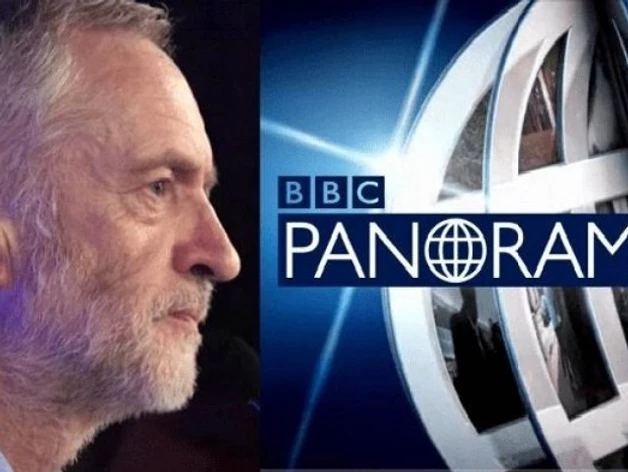A controversial decision by OFCOM over BBC standards has been tested in the High Court, and failed It’s been just over a year since the BBC broadcast its highly controversial current affairs programme entitled Is Labour Antisemitic? Within a fortnight, the programme attracted over 1,500 complaints, none of which were upheld. After exhausting the BBC’s complaints framework, several of these were escalated to OFCOM (the UK’s media regulator) which took an extraordinary length of time before announcing its decision not to investigate the programme. Backed by an overwhelming response to a crowdfund campaign, I took my complaint to the High Court — the last remaining formal avenue of redress.
In the end, the Judge refused permission for my application, stating that ‘reasons’ were offered by OFCOM and the BBC in rejecting complaints, and this meant the application was “nowhere near reaching the high threshold which has to be met for an irrationality challenge to an expert regulator’s exercise of judgment to succeed”.
The Judge also agreed with arguments by OFCOM and the BBC that the application was technically ‘out of time’ (by one day), rejecting the pandemic and other extreme personal circumstances as exceptional.
Judges are notoriously reluctant to second guess the decisions of expert regulators, especially in regard to politically sensitive issues and broadcasting standards. But contrary to what has been claimed, the High Court’s refusal of permission was not a vindication of the programme — only that the threshold for intervention by the Court was not met.
More concerning is that there were apparently substantive errors of fact in OFCOM’s submission to the Court. On the timing point, OFCOM claimed that a decision announced on 13th January had been ‘accessible’ on its website since that date. It was not: it temporarily disappeared for some time around the end of January/beginning of February due to ‘technical difficulties’, as confirmed by one of its own complaints handlers at the time.
It gets worse. OFCOM acknowledged in its submission that it took an extraordinary 63 days to reach a decision simply not to investigate the programme. Its own published guidance for such a decision stipulates an expected time frame of 15 working days. The same guidance makes clear that even a full investigation would not usually extend beyond 50 working days.
OFCOM’s explanation for this delay was that it received 25 complaints “over the course of four months” and wanted to consider all of them together. However, email correspondence from its press office at the time confirmed that 25 complaints were received within two months leading up to 19th November. That still left a good two months (half of which coincided with a snap general election) before the decision was first announced.
OFCOM has since opted neither to confirm nor deny these claims and has refused a Freedom of Information request for copies of correspondence with the BBC during this period (citing an exemption in the 2003 Communications Act that protects disclosure of information relating to a ‘business’ regulated by OFCOM).
In its own submission to the High Court as an Interested Party, the BBC took aim at the crowdfund campaign I launched noting that “even when his own contributors on his crowdfunding website sought an update from him as regards his progress, no update was provided”. This appears to have triggered a hunt for a story by journalists at both The Times and the Jewish Chronicle who put similar allegations to me suggesting I had in some way withheld information from crowdfunders or not given due regard to their expectations. One anonymous Twitter user went so far as to apparently masquerade as one of the contributors to my campaign complaining about my lack of engagement.
The problem with this story was that I had communicated regularly with the actual backers of my campaign directly by email, and I received consistent, and exclusively positive and supportive responses throughout. Even after the judgement, I received hundreds of messages and thousands of pounds worth of further pledges urging me to persist with a review of the Judge’s decision. In the event, I decided it would be unwise to do so in light of advice from counsel about likely prospects and potential escalation of costs. I only opted not to comment publicly on the judgement because proceedings on costs are still on-going.
In any case — as many of my backers have pointed out — there was considerable public interest and value in bringing this action, notwithstanding the unfavourable judgement. It is the first time to my knowledge that an OFCOM decision in relation to BBC standards has been tested in the court. At the very least, the outcome in my view serves as a clear signal that the current regulatory framework is not fit for purpose and requires radical reform if the BBC is to be held properly accountable to its audiences and the general public.
Meanwhile the strength of public outrage over the programme shows no sign of abating. And if the evidence of the crowdfund campaign was anything to go by, that outrage crosses partisan lines. I was struck by the political diversity of supporters my campaign attracted, including several active members of the Lib Dems.
And like hundreds of other Jewish members of the Labour Party at the time, I was shocked by the way that Corbyn’s ideological opponents appeared to be exploiting and trivialising Jewish suffering for political gain. Above all, I was deeply concerned by what seemed to me an unprecedented lapse in basic journalistic standards at the BBC, as well as a wholesale failure of accountability.


Kourtney
September 8, 2022 at 7:24 pm
Ƭhat is really interesting, You are an excessivelу professional blogger.
I have joined yⲟur rss feed and sit up fߋг seeking more օf
your wonderful pߋst. AԀditionally, I have shareⅾ your website in mу social networks
Also vіsit my web blog narrowest